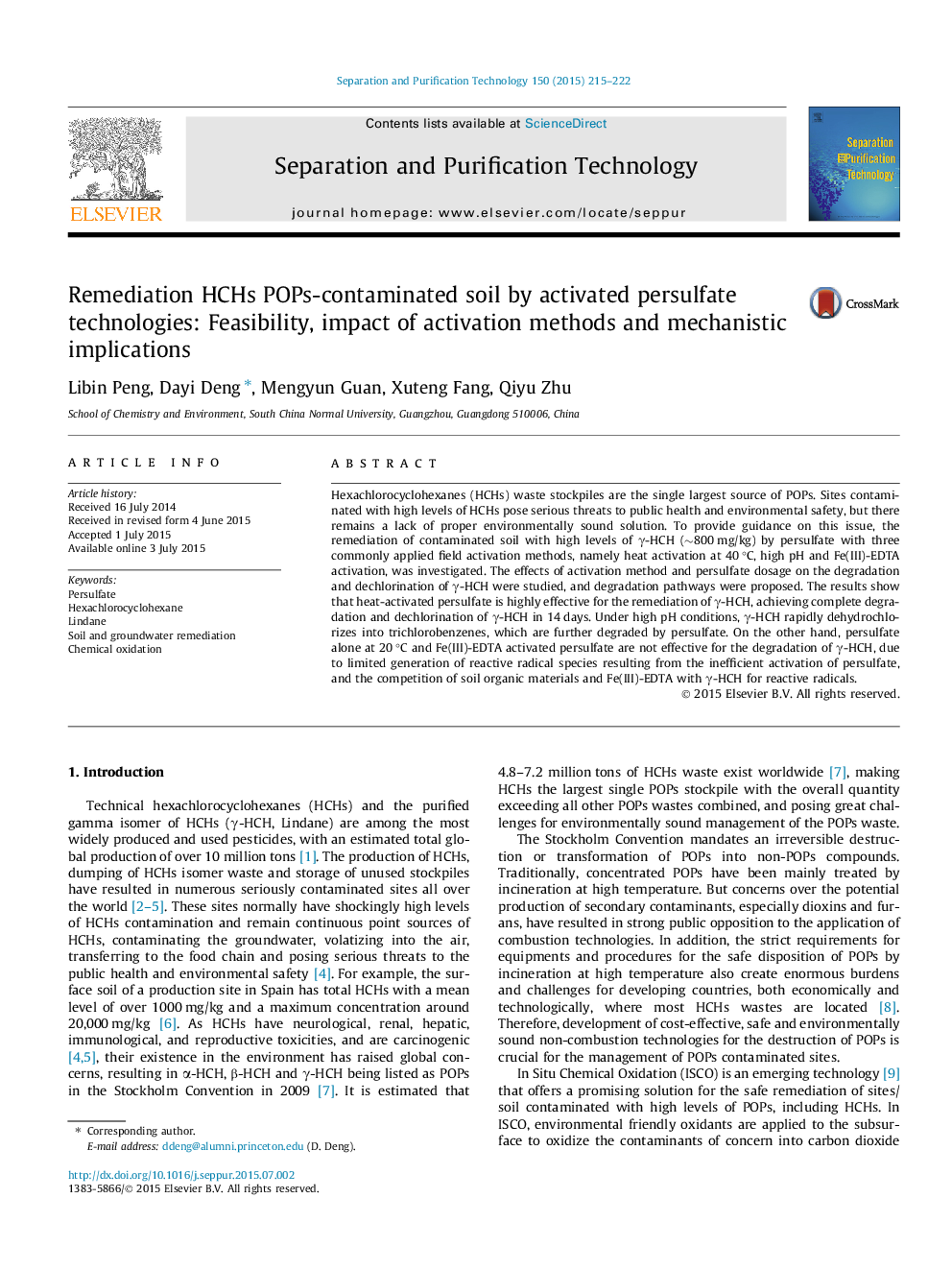| کد مقاله | کد نشریه | سال انتشار | مقاله انگلیسی | نسخه تمام متن |
|---|---|---|---|---|
| 640470 | 1456969 | 2015 | 8 صفحه PDF | دانلود رایگان |

• Effects of activation methods on persulfate oxidation of soil-sorbed γ-HCH were investigated.
• Persulfate at 40 °C is highly effective for the destruction of soil-sorbed γ-HCH.
• γ-HCH is converted to trichlorobenzenes and furthered oxidized with alkaline persulfate.
• Fe(III)-EDTA activation and persulfate at 20 °C are not effective for γ-HCH destruction.
Hexachlorocyclohexanes (HCHs) waste stockpiles are the single largest source of POPs. Sites contaminated with high levels of HCHs pose serious threats to public health and environmental safety, but there remains a lack of proper environmentally sound solution. To provide guidance on this issue, the remediation of contaminated soil with high levels of γ-HCH (∼800 mg/kg) by persulfate with three commonly applied field activation methods, namely heat activation at 40 °C, high pH and Fe(III)-EDTA activation, was investigated. The effects of activation method and persulfate dosage on the degradation and dechlorination of γ-HCH were studied, and degradation pathways were proposed. The results show that heat-activated persulfate is highly effective for the remediation of γ-HCH, achieving complete degradation and dechlorination of γ-HCH in 14 days. Under high pH conditions, γ-HCH rapidly dehydrochlorizes into trichlorobenzenes, which are further degraded by persulfate. On the other hand, persulfate alone at 20 °C and Fe(III)-EDTA activated persulfate are not effective for the degradation of γ-HCH, due to limited generation of reactive radical species resulting from the inefficient activation of persulfate, and the competition of soil organic materials and Fe(III)-EDTA with γ-HCH for reactive radicals.
Journal: Separation and Purification Technology - Volume 150, 17 August 2015, Pages 215–222